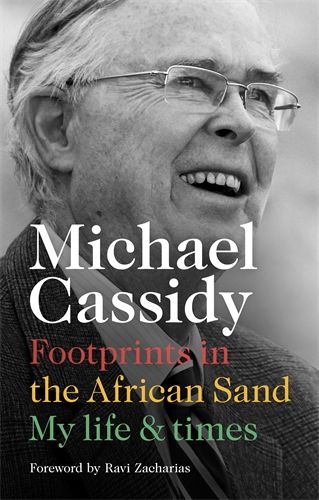The Christian church in Africa has grown phenomenally in numerical terms in the last century and will have a significant impact on the worldwide church in future. The health of the church in Africa should, therefore, be a matter of importance to every Christian.
In this memoir, Michael Cassidy, the founder of African Enterprise, tells the story of his life from his early life in Lesotho to the present (Michael is now in his eighties). In doing so, he emphasises that 'My testimony is of a weak vessel that the Lord decided to use in a very complicated context to make a difference in it through the power of his Spirit' (xiii).
Michael tells of how he grew up in a loving family with many privileges. Christianity was given some reverence by his parents (particularly his father), but was not a significant part of his family life. Following his schooling, Michael had the opportunity to study in the UK, at Cambridge, and while he did not excel academically there, he tells of the momentous change that occurred as he became a Christian through the witness of Christian friends and the ministry of Billy Graham. Theological studies in the USA followed and there, along with several friends, Michael founded African Enterprise. The mission of African Enterprise is to 'Evangelize the Cities of Africa through Word and Deed in Partnership with the Church' (461). Michael tells of how opportunities to carry out this mission opened to him and his colleagues so that AE now has ministry teams in ten African countries.
The political situation in colonial southern Africa, and particularly the development of Apartheid philosophy in South Africa was a constant backdrop to Cassidy's life. He speaks of how his own attitudes changed over many years and how racial integration and reconciliation became a non-negotiable characteristic of AE's work. Michael's close relationship with Festo Kivengere of Uganda is particularly evident throughout the book. It is fascinating to see how Michael and other Christians were enabled to bring Christian testimony into the turbulent politics of South Africa at the time of the end of Apartheid. AE also played an important role in the aftermath of the genocide in Rwanda.
This is a substantial book (over 470 pages in length), but it is written with a light touch, and frequently with flashes of humour. There are numerous photographs and citations from personal correspondence which give a personal flavour to the book. It is a memoir, not a critical history, so that there are occasions where the reader might wish to have fuller reflection on circumstances. Generally, however, Michael tells his story carefully and thoughtfully. At a number of points I would express theological points differently or want to discuss theological claims further, but Michael's faith in Jesus and commitment to Scripture come through strongly.
I warmly commend this book to all who love Africa and long for the good of the global church.
This book is available to purchase from SPCK.
Alistair I. Wilson, Edinburgh Theological Seminary

